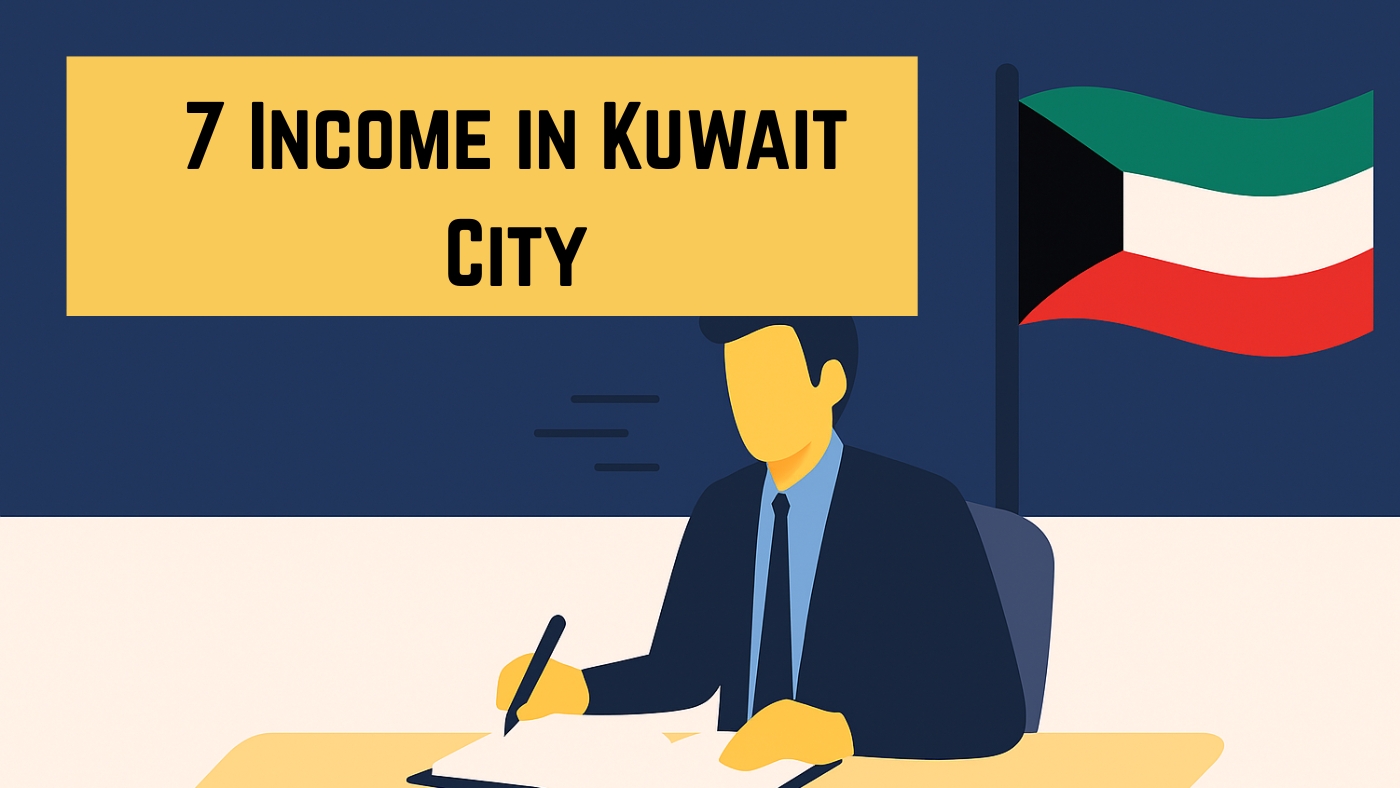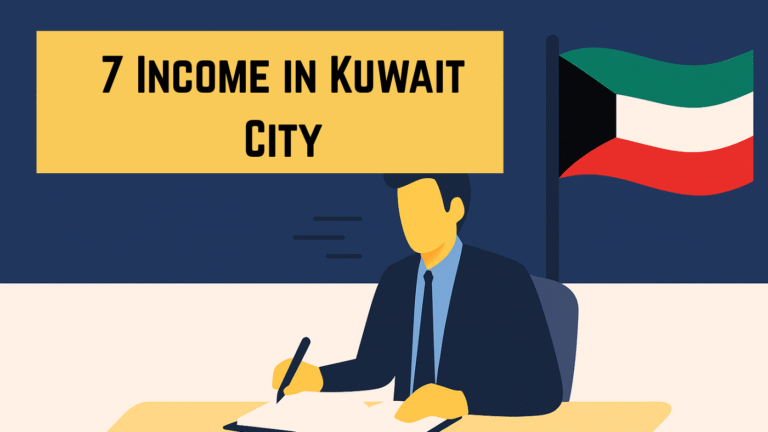
Income in Kuwait City
Contents
- 1 1. Leverage High-Paying Traditional Jobs
- 2 2. GO into Freelancing and Remote Work
- 3 3. Start a Small Business
- 4 4. Invest in Real Estate or the Stock Market
- 5 5. Try Mystery Shopping and Paid Surveys
- 6 6. Upskill with Certifications
- 7 7. Monetize Your Online Presence
- 8 Kuwait’s Work Rules and Regulations
- 9 Conclusion
- 10 About the Author
Kuwait City is more than just a city of oil wealth — it’s a place where smart people can tap into various opportunities to grow their income. Whether you’re a local or an expat, here are seven proven ways to upgrade your earnings in Kuwait City:
1. Leverage High-Paying Traditional Jobs
Kuwait pays generous salaries in sectors like engineering, finance, healthcare, and IT, especially for skilled professionals. Government jobs also come with perks like housing allowances and tax-free income.
2. GO into Freelancing and Remote Work
Platforms like Upwork, Fiverr, and Toptal allow you to earn in USD while living in Kuwait. Popular freelance fields include graphic design, writing, programming, and digital marketing.
3. Start a Small Business
Kuwait’s business-friendly regulations make it easier to launch ventures like:
- Online retail stores
- Food trucks
- Cleaning services
- Mobile app development. These ideas require low capital and offer high returns.
4. Invest in Real Estate or the Stock Market
Real estate in Kuwait remains a stable investment, especially in residential and commercial properties. You can also explore regional stock markets or ETFs for long-term growth.
5. Try Mystery Shopping and Paid Surveys
Companies like GWR Consulting pay individuals to evaluate customer service and product quality. It’s a flexible way to earn extra cash during your free time.
6. Upskill with Certifications
Boost your earning potential by acquiring certifications in project management (PMP), cybersecurity, data analytics, or other in-demand fields. Many employers in Kuwait reward specialized skills with higher pay.
7. Monetize Your Online Presence
If you have a talent or niche interest, consider starting a YouTube channel, blog, or Instagram page. With consistent content and audience growth, you can earn through ads, sponsorships, and affiliate marketing.
Kuwait’s Work Rules and Regulations
- • Mandatory employment contracts with job title, salary, start date, and duration.
- • Standard working hours: 8 hours per day, 48 hours per week, with Ramadan reduced to 36 hours per week.
- • Wages and overtime: paid monthly or biweekly, with overtime pay required for extra hours.
- • Leave entitlements: annual leave (30 days after one year), sick leave (up to 40 days), and maternity leave (70 days for female employees).
- • Termination and probation: up to 100 working days, with termination after probation requiring notice and a valid reason.
- • Worker protections: protection against unjust dismissal, discrimination, and unsafe working conditions.
- • Exceptions: Domestic workers, government employees, and military personnel are not covered under private sector labor law.
Conclusion
Kuwait City is ripe with opportunity—but income growth requires action. Whether you’re looking for side hustles or long-term investments, these seven strategies POST can help you build a more secure and prosperous financial future.
Would you like help preparing a business plan or setting up a freelance profile? I’d be happy to guide you through it.
Discover more from STEVTEK
Subscribe to get the latest posts sent to your email.





